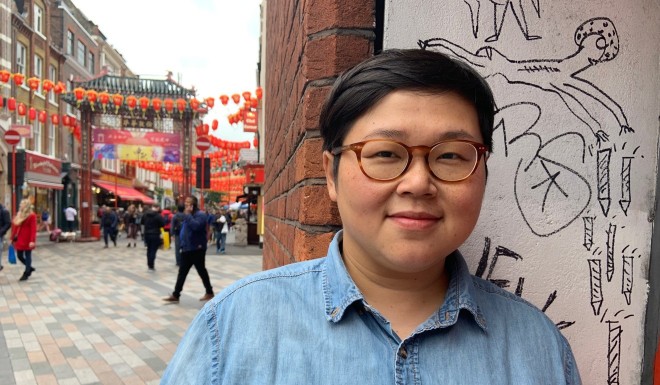
UK gets tough on domestic abuse as ‘helpless’ Chinese women suffer in silence
- ‘In Chinese culture, domestic violence is family business, nothing to do with the community or the authorities’, says caseworker

Chinese women living in the UK may struggle to benefit from a new domestic abuse bill that was expected to be included in Queen Elizabeth’s annual speech to the parliament on Monday.
The bill aims to toughen laws against physical and emotional abuse in close relationships. But it still could leave Chinese women, some of whom are tied to their husbands in the UK by their immigration status, out in the cold.
Last year, around 100 women came to the Chinese Information and Advice Centre in London’s Chinatown to seek support and advice about how to leave their husbands.
“They feel helpless,” said Jamie Law, a domestic violence caseworker originally from Hong Kong.
“Their social circle is tiny, they have the same friends as their husband possibly. So, how are you going to share what you are going through with someone who quite likely might tell your husband?
“In Chinese culture, domestic violence is family business, nothing to do with the community or the authorities. The message it is just a fight and you should reconcile and keep the relationship.”
If the victim does seek help within the community she will be told “to just hang on and definitely not come home to China”.
A pet project of the former prime minister Theresa May, the 2019 Domestic Abuse Bill will be the first time a statutory definition of domestic abuse includes other forms of aggression, apart from physical violence.
This includes coercive and manipulative behaviour, especially when violence is threatened, even if not carried out, as well as economic and financial abuse.
It will bring together a “plethora” of separate orders into a single Domestic Abuse Protection Order to be issued by the police, that will for example, require the alleged perpetrator to leave the home of the victim for up to 48 hours.
The issue of that notice will then trigger a police application to a magistrates’ court for a longer-term DAPO to protect the victim.

Abusers will not be allowed to cross-examine their victims in court. Campaigners say in cases such as narcissistic personality disorder, the abuser draws on his thespian skills to convince the judge his accuser was unhinged and he was the sane one.
But charities involved in domestic abuse as well as the human rights group Amnesty International UK have warned that the legislation fails to offer migrant women the protections they need, Chinese women included.
Many of Law’s cases involve Chinese women in the UK on a spouse visa, which means they are not entitled to government support for housing. That situation makes it complicated for women to leave their husbands, especially when children are involved.
Often victims do not speak English and may be financially dependent on their spouses. Law said she has seen cases where the abuse was carried out by an English husband.
Punishment is also not always adequate either. In her work, Law has seen a case of a husband who poured boiling oil over his wife’s arm, but received 120 hours of community service.
She has also dealt with cases of violence on pregnant women, and of a man who raped his wife in front of the children.
“We have heard a lot of cases of rape within marriage, but we can’t get anyone to lodge a complaint. How do you prove it? That has put off a lot of women from coming forward.”
Financial abuse can also be a problem, and was often connected to problems of gambling-induced debt.
Coercive behaviour and emotional abuse were even more difficult to prove.
“We have to go to the police and show evidence,” said Law.
Evidence can be in the form of text messages or secretly-recorded arguments, which raises the problem of language or having the phone taken from them for forensic tests.
“Leaving the relationship, especially when there are children, can be like a war,” Law said.
“You have to be fighting for child custody, fighting with the social worker, the authorities, getting benefits, and the immigration office because your visa is uncertain. It goes on and on.”
Law said more Cantonese and Mandarin-speaking professionals with experience of domestic abuse were needed. As it is, supporters of the proposed new legislation say it will be useless even for British women if support services were not available.
“We need more people who understand the situation. If I go, the authorities might just see it as a bid to get an immigration status to be fast-tracked, so they make things up. I can’t do anything unless there is support from the community,” she said.
Having a Mandarin-speaking Chinese lawyer doesn’t always help either.
“I once spent ages persuading the woman to ask for assistance and then the woman solicitor didn’t understand why the victim was complaining, and told her off.”